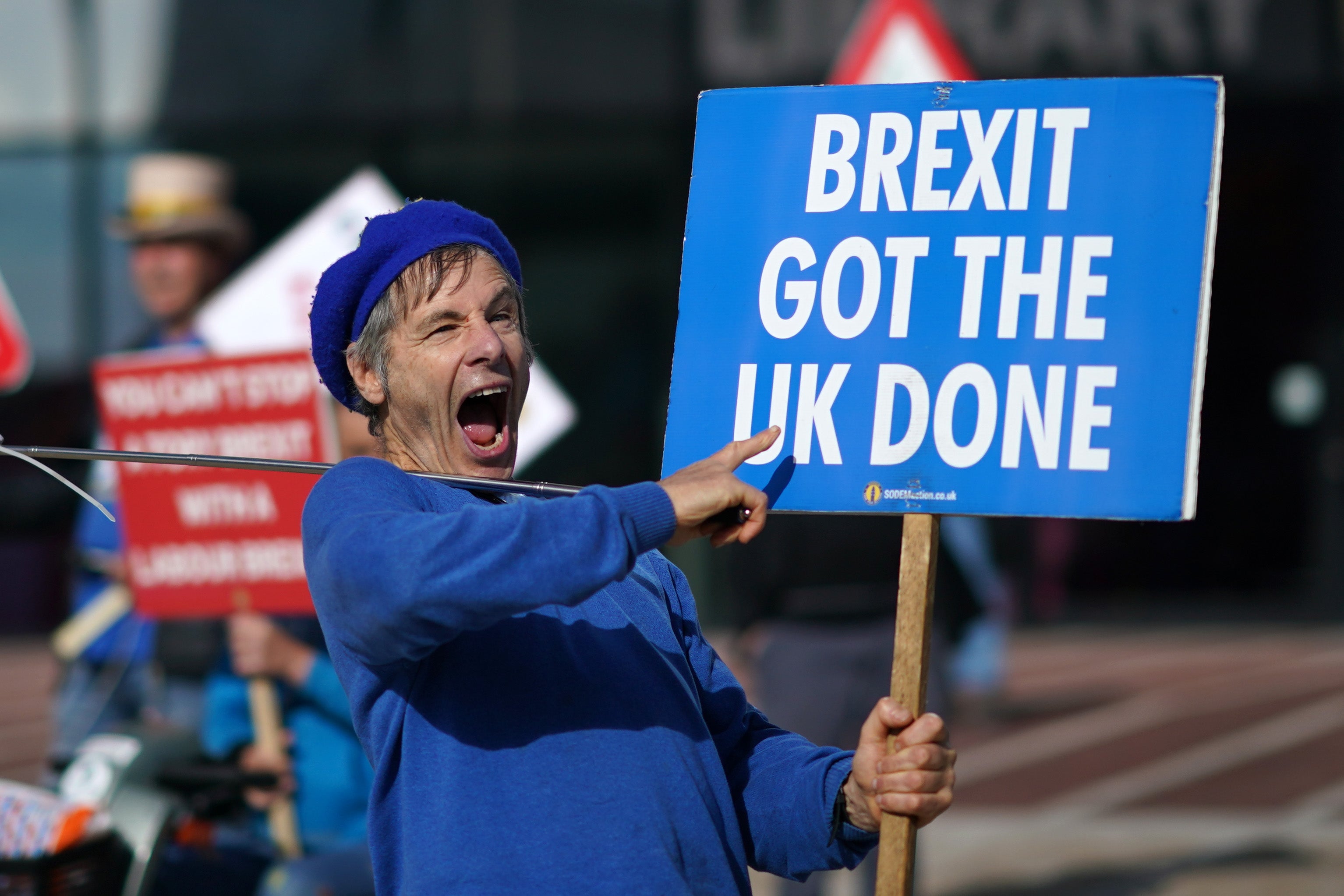Brexit regret: Why the ‘undeniable disaster’ finally hit home with the British public in 2022
Public opinion shifted against Brexit after a deluge of damning evidence on economic costs. Adam Forrest takes a look at what changed
The Tories, Labour and Liberal Democrats did their best to ignore Brexit in 2022, despite a growing mountain of evidence on the economic damage caused by the UK’s decision to leave the EU.
But 2022 was the year of Brexit regret, as opinion surveys saw an increasing number of people saying our exit has gone badly and record high support for re-joining the bloc.
So what changed? The Independent took a closer look at the deluge of data on Brexit’s painful impact on the economy and growing unpopularity in the polls.

In December, the Centre for European Reform (CER) found that Brexit cost the UK a staggering £33bn in lost trade, investment and growth. The CER also estimated the tax loss from Brexit at around £40bn.
The research – first shared with The Independent – showed that by June of this year Britain’s economy was 5.5 per cent smaller than it would have been if the country had remained in the EU.
Then there was the impact on food prices. Brexit has cost households more than £5.8bn in higher supermarket bills, a study by the Centre for Economic Performance found earlier in December.
The experts, based at the London School of Economics (LSE), said Brexit had pushed up UK food prices by 6 per cent, since new trade barriers were a key factor behind the nation’s highest inflation rates in decades.
Brexit has also been hitting wages. Back in June, a damning report from the Resolution Foundation and LSE experts found that Brexit would dampen British workers’ pay for the rest of the decade – making the whole of the country “poorer” during the 2020s.
It found that real pay was set to be £470 lower per worker each year, on average, than if Britain had opted to stay inside the EU. Experts pointed to 8 per cent slump in the UK’s “trade openness” – trade as a share of economic output – since Brexit.

Surveys repeatedly showed businesses continuing to struggle with Brexit bureaucracy. By the end of 2022, some 56 per cent of trading firms still faced difficulties importing or exporting goods, the British Chambers of Commerce found.
Few senior figures outside of government had little good to say about Brexit. In November, the Office for Budget Responsibility said it was sticking to its previous estimate that Brexit would reduce GDP by 4 per cent over 15 years from 2016 – swiping an estimated £100bn from the economy long-term.
The same month, the respected Institute for Fiscal Studies (IFS) said it had become clear that Brexit had been a major “own goal” for the economy. Director Paul Johnson said: “Economically speaking, that has been very bad news indeed and continues to be bad news.”

The Bank of England’s chief economist Huw Pill said Brexit was partly to blame for the UK’s high levels of inflation, and questioned whether the post-Brexit shift to non-EU migrants had been as “productive” to the UK economy.
And ex-environment secretary George Eustice, after leaving government, admitted that the post-Brexit trade agreement with Australia was “not actually a very good deal”.
In November, the Tony Blair Institute said it was time for Rishi Sunak to consider aligning with parts of the EU single market for goods and “revisit” the Brexit trade deal already agreed with Brussels.
It followed a furore over a report that the government was considering “Swiss-style” alignment deal to gain single market access. Mr Sunak swiftly ruled out the possibility, but a series of polls found a majority of voters want closer ties with the EU.

So has public opinion hardened against Brexit? Polling guru Prof John Curtice said there has clearly been “greater pessimism” about the impact of Brexit and “a detectable majority in favour of joining the EU” during the past year.
In October, a Redfield and Wilton Strategies poll found record support for reversing Brexit at 57 per cent, compared to just 43 per cent who want to stay out of the EU. In November, one in five Leave voters told YouGov they regretted voting for Brexit – the highest number yet recorded by the firm.
And in December some 65 per cent of all voters told Opinium that Brexit is going badly, while only 21 per cent believe it is going well – the highest level of negativity since Boris Johnson’s trade deal came into force.
“There is no doubt that there has been something of a decline in support for Brexit,” Prof Curtice told The Independent. “The principal explanation for the shift seems to be the economic consequences of Brexit.”
Naomi Smith, chief executive of Best for Britain – which campaigns for closer ties with the EU – said 2022 was the year that “the damaging fallout of Brexit became undeniable with most people now agreeing that the government’s deal has been an unmitigated disaster”.
The campaigner added: “It is far past time that those responsible for this sabotage are held to account and for those hoping to form the next government to level with the public about Brexit.”
With the Labour and Lib Dems stung by past electoral failures from Brexit, and most Tories stunned into silence by the present disarray, it seems unlikely we will see a major shift in positions in the early part of next year.
But Mr Sunak, Sir Keir Starmer and Sir Ed Davey may find it increasingly hard to ignore the consequences of Brexit during 2023, and the growing clamour for clarity on what fixing the mess might look like.
Join our commenting forum
Join thought-provoking conversations, follow other Independent readers and see their replies
Comments




Bookmark popover
Removed from bookmarks